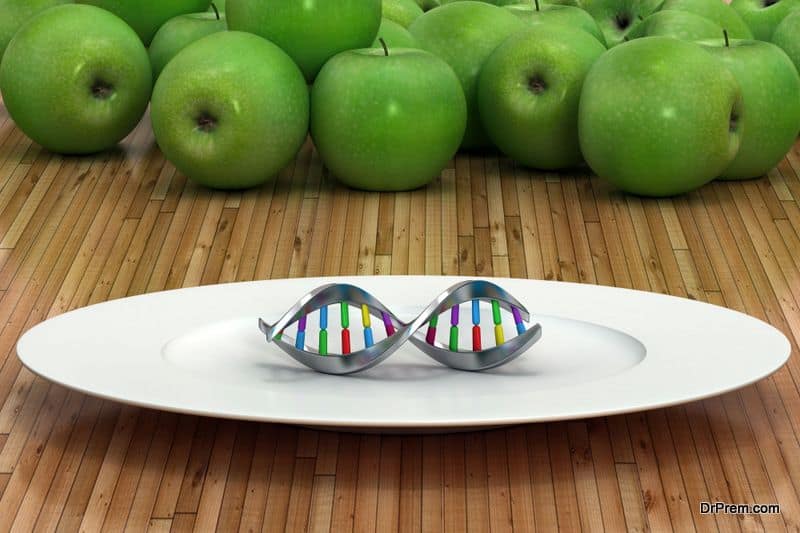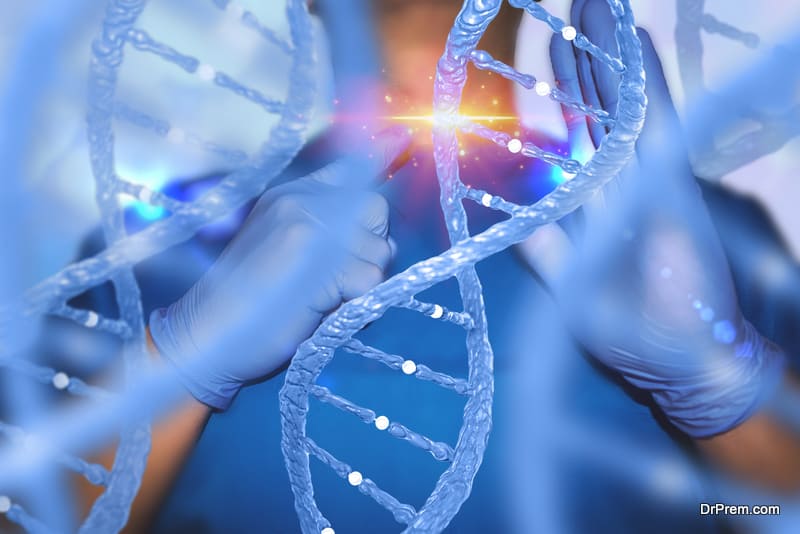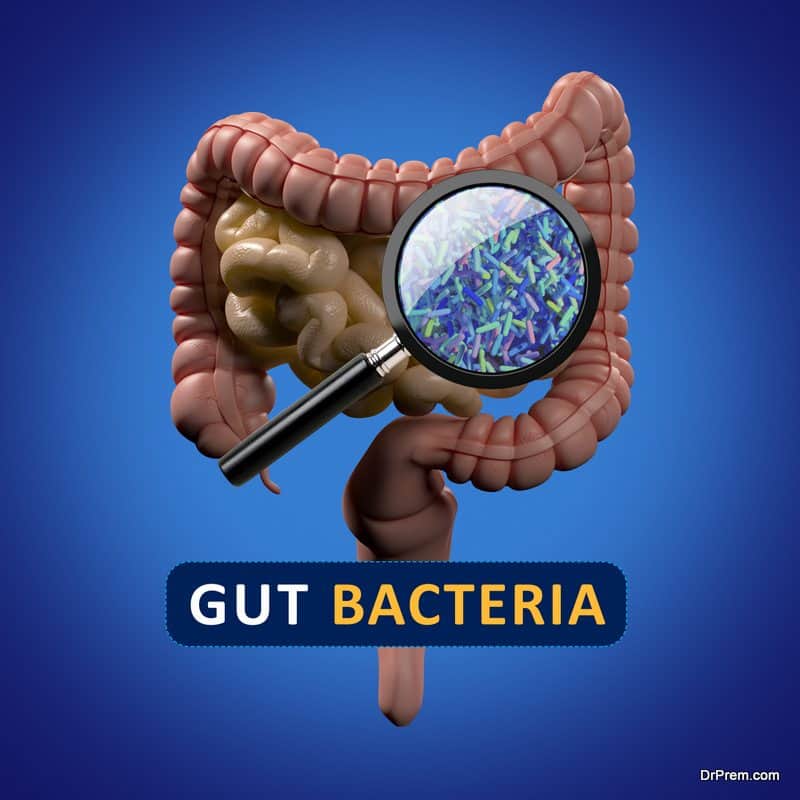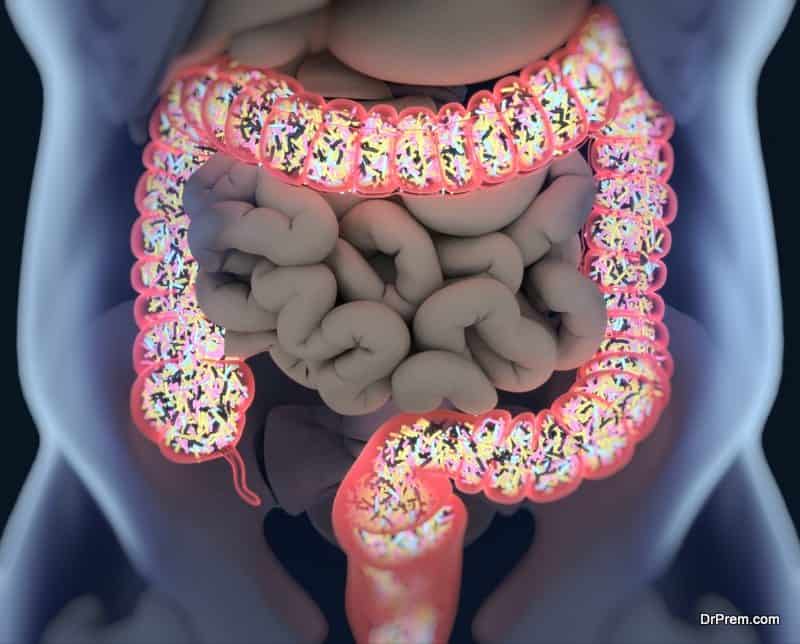Let food be thy medicine – This quote of Hippocrates seems to be reemerging. Global healthcare may see a new form of medicine in personalized nutrition. Dietary habits have lifelong influence on an individual’s health. Faulty diet is often responsible for obesity, diabetes and other chronic ailments including cancer that is overburdening healthcare systems worldwide.
How personalized nutrition is set to change future medicine?
-
Your nutrition needs are special
-
What we do or eat is more important than genetics
-
Where do we go wrong in making healthy nutritional choices?
-
Nutrigenetics and nutrigenomics
-
Revelations open up a possible new era in personalized nutrition
-
Genes may not have much to do on obesity
-
The key to personalized nutrition lies in gut microbes
-
Influence of gut microbes on food absorption
-
How companies are using tech, AI and apps in personalized nutrition?
-
Can personalized nutrition help in disease reversal?
-
Future perspective
-
Personalization or not? The verdict is not yet out
So what if we have a high-precision tool in the form of personalized nutrition that can be more preventative? No single diet plan works for everybody; researchers are thinking of personalized nutrition. Ever since the success of Human Genome Project and gene sequencing which is affordable today, scientists are keen to explore another domain of personalization in ‘nutrigenomics’.
Can personalized nutrition help in disease reversal? This can have a great implication on global healthcare where mounting treatment cost is breaking banks of many. Business in personalized nutrition is growing in a big way. Experts say this market will cross $ 11.5 billion by 2025. Several companies are emerging with personalized nutrition suggestions and recommendations. After all, personalization has a special appeal and therefore is going to stay.
Your nutrition needs are special:
One man’s food can be the other man’s poison. The one-size-fits-for-all approach in nutrition does not work. Of course, different countries have specific dietary guidelines to guide the population towards better health by providing explanations of changing nutritional requirements at different phases of life. Certainly, what you need to eat most as a child will not be appropriate during adulthood or the elderly phase. Your body may not be tolerant to all foods; the symptoms can be apparent or hidden.
Years of research are giving new insights that even though the basic concept of healthy nutrition or a balanced diet may be applicable to the general population nutritional requirements vary from person to person. No two individuals are the same nor do they carry similar predispositions to various nutrients.
What we do or eat is more important than genetics:
We blame our genes for our different health conditions. Obesity, high blood pressure and diabetes all are inherited. But researches have reversed the notion. Our genes are not static, they can be easily shaped by our lifestyle and other conditions. Even if your forefathers do not have any history of these diseases, you can develop it from your lifestyle. How to explain this?
Where do we go wrong in making healthy nutritional choices?
In the pursuit of good health, people become a fetish of curated diets. Populations are turning weight-obsessed going to dangerous extremes of diet control. They are more engrossed in counting calories, measuring fats and proteins to get numbers on the scale right discounting the nutritional value. These are often unsustainable, create a negative impact on metabolism and instead of making people lose weight are adding to it.
So it is a no brainer that people will look for evidence-based quality solutions for long term health and wellness. Personalized nutrition promises to end the frustration of weight watchers and wellness-seekers. Genome sequencing and OMICs have already shown the path.
Nutrigenetics and nutrigenomics:
Your food and genomes interact. To understand this better, you need to understand the above-mentioned terms. Nutrigenetics studies how the genetic makeup of an individual predisposes him/her towards specific food while nutrigenomics signifies how an individual’s diet impacts the genomic expression. That is how your genes express through your regular food habits.
Nutrigenomics is built on three OMICs – transcriptomics, proteomics and metabolomics. All of these contribute to genetic expressions. Whatever food you take gets transcripted in your gene which can be decoded through the study of all these three OMICs.
Both nutrigenetics and nutrigenomics can be the future tools in personalized nutrition counseling as it helps in understanding the variability in nutritional requirements. In global healthcare, it is likely to have a bigger impact on disease prevention than in treatment. But it is nutrigenomics that is gaining profound interest among researchers, physicians and consumers.
Revelations open up a possible new era in personalized nutrition:
Genes may not have much to do on obesity:

With the obesity epidemic sweeping the world, people have become more conscious of their dietary choices. Ditching fats, sugar, refined and processed foods and adopting vegan diet has been the norm. One cannot do much with the genetic predisposition to obesity.
Findings in studies showed something else. There was no marked statistical difference in weight loss between people who ate according to their phenotype and those didn’t. A bad news for companies marketing DNA-based diets. This means, if you are genetically predisposed to be obese, conventional dietary restrictions might not help you much.
The genetic influence on obesity has been hard to affirm, it can be between 35-85%. It has been observed since long that a single weight loss strategy does not have the same effect on every overweight/obese person. Responses to food vary strikingly in individuals. This is largely attributed to metabolism, but what explains this large metabolic variation?
PREDICT, a comprehensive study done regarding individual responses to different foods came up with the following revelations:
- Processing similar macronutrients varied a lot even in identical twins with almost a similar genetic constituent. A person efficiently metabolizing one macronutrient, for example, fat may not metabolize carbohydrates to that level of efficiency. He/she may even show poor response to other macronutrients.
- Variation in individual response to food or metabolism depends on many things like gut microbiota, quality of sleep, body fat and physical exercise.
- Based on a study on twins, it has been found genes contributed 70% of the obesity risk of an individual on an average. The remaining 30% might be influenced by gut bacteria.
- A gut project revealed even identical twins shared only 50% of the gut bacteria.
- Genes play a limited role in fat and carbohydrate processing. Environmental factors and the diversity in the gut microbiome are more important in body metabolism.
- Studies revealed that much of the obesity factors are not genetic and hence can be modified.
Creating a personalized diet would be more important to beat the obesity epidemic and surging type 2 diabetes. Millions of obese and diabetics around the world may feel disappointed to meet their health goals even though they follow healthy diets. What they do not know about is their own response to foods that they are taking daily.
For example, a person taking a banana might have a worse response than consuming an apple even though both are healthy options. Despite the standard guidelines to eat fruits and vegetables for good health, many people are clueless of which are really benefitting their health.
The key to personalized nutrition lies in gut microbes:
Our body is made of 10 trillion cells; even more surprising is it houses nearly 100 trillion microbes mainly bacteria. And these wield an amazing power on our health. Our microbiome or the vast colonies of microbes get influenced by a number of factors – genetics, environment, diet, stress, sleep and so on.
Therefore, manipulating and balancing the microbiome can help in understanding our nutritional requirements and food responses which in the long run can be useful in disease treatment and prevention. Among all bacterial colonies, it is the gut microbiome that has occupied the center stage in personalized nutrition. Can it at all change the future of global healthcare by helping more in prevention than cure?
According to the microbiologist Lora Hooper of the University of Texas Southwestern Medical Center, Dallas, it is the gut microbiota that really determines the calorie amount drawn from food. It may not be equal to the calorie count of the food on your plate. Well, one might have to look into self gut microbiome and other factors to create a personalized diet plan but that is not a cake walk either.
Influence of gut microbes on food absorption:
This is not a recent discovery but was never considered seriously. Past researches show how gut microbes affect the digestion of fiber and complex carbohydrates. It also influences fat absorption from food which varies individually. Research has also affirmed the role of microbes in causing blood sugar spikes among individuals after having white bread.
Researchers have enlisted hundreds of categories of gut microbes. By analyzing and sequencing the genes of these microbes, it can be assessed how a person’s blood sugar level will respond after taking a specific food. Based on this, scientists could accurately predict individuals’ glycemic responses after taking certain kinds of food.
How companies are using tech, AI and apps in personalized nutrition?
A kit is provided to the customers containing glucose meter, lancets, test strips and equipment for gut test and a questionnaire. The consumer has to send the analysis to the companies for sample analysis and reports. This sample analysis is driven by Artificial Intelligence that scans trillions of data from the massive database comprising of high-quality research work, expert comments from scientists, biological rest results and customer feedback.
The customer’s sample is fed into the existing data pipeline for AI analysis after which a suitable diet plan or eating guidelines are created. The aim of personalization is to make micro-adjustments to our lifestyle by modifying regular habits. Such analysis gives an insight of what to include in the diet and which ones to discard.
Each of the companies is providing unique apps to the consumers to manage their own nutritional plans and keep a track of their wellness goals. They can interact with others, share recipes and access fitness coaches according to their requirements. These companies are helping in fine tuning of the gut microbes after analyzing the samples and answers of the provided questionnaire.
Can personalized nutrition help in disease reversal?
In diabetes management, the glycemic index still counts. There are 99% chances that high glycemic foods would result in higher blood glucose spikes at any time of the day. Therefore, following the standard guidelines is imperative to maintain good health. But the problem arises when nutritionists put the blame on people for not following the set guidelines to tide over obesity and diabetes.
The question arises, are the guidelines sufficient and evidence-based to get the desired impact? Here personalized nutrition can do better. The PREDICT study showed how individual’s blood glucose responses varied tremendously after having standardized food (muffin).
This explains the need for personalized nutrition. And considering the influence of the gut microbiome on different kinds of food, sticking to personalized nutrition guidelines can even reverse the condition. Researchers are hopeful that harboring diverse colonies of microbes in the gut may help in reversing some chronic ailments like diabetes. Those specific microbes have a special impact on metabolism and food absorption and therefore can result in better insulin response.
Future perspective:
With ‘OMICs’ and related cutting-edge technologies advancing at rapidly, personalized food products are likely to dominate the market in the near future. Most consumers will benefit from practical dietary solutions and that would include infants, pregnant and lactating women, sedentary adults and those who are obese, frail, elderly and diseased.
As global healthcare is focusing on personalized medicine, nutritional guidelines need to be personalized as a parallel approach to help people recover. Nutrigenetics and nutrigenomics have built the base of this and with genome sequencing technology becoming readily accessible and affordable, consumers will be able to gain more insights about nutrient requirements. This is not all. Holistic metabolism investigation involving various OMICs can only help people gain insights on how diet affects our genomic expressions.
Personalization or not? The verdict is not yet out:
Personalized nutrition has been largely considered as functional medicine and is yet to be accepted as the standardized form of care. Imagine the study of trillions of microbes in different individuals and their varied genetic expressions. This might take another decade or two to derive insights from transcriptomics, proteomics and metabolomics before they could be translated for universal care.
Therefore, researchers advocate caution, not to discount the properties of food especially the glycemic index. This is an important part apart from giving due importance to gut microbiome. The varied response of individuals to different foods is somewhat linked with the glycemic index.
Blood glucose will spike to higher peaks with high glycemic foods although the peaks may vary day to day someday it may shoot much higher than the average normal. You can avoid this by taking low glycemic foods. If you stick to high glycemic foods, your blood glucose level is likely to remain at higher levels.
It is true personalization will work much better by taking the gut microbiome approach. Unless final conclusions are derived, why not stick to healthy choices? At least, down the line, fruits and vegetables will not be considered bad. It will just be a matter of which ones to consider and which ones to avoid.










